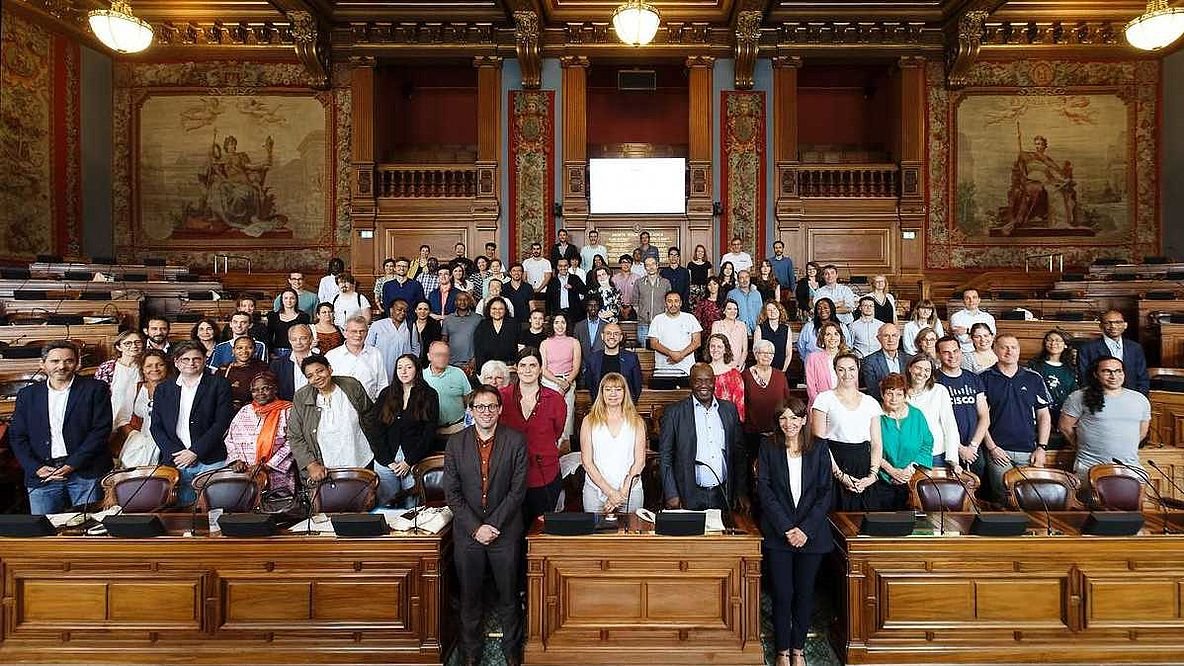Celebrating the evolution of Citizens’ Deliberation
Developments in deliberative processes are reshaping how citizens participate in governance and decision-making. We explore here some of the most notable advancements picked from recent notices in the Democracy R&D newsfeed:
1. Paris: A Landmark in Citizens’ Assembly Impact
Europe is experiencing a fascinating evolution in the growth and impact of Citizens Assemblies. In particular, Paris has set a remarkable precedent in the implementation of Citizens Assembly recommendations. On July 10, 2024, the Paris City Council made history by adopting and passing into law major legislation written by a permanent Citizens' Assembly. This assembly, composed of 100 randomly selected citizens, proposed 20 measures to combat homelessness, all of which were enacted.
This development represents a significant step forward in bridging the gap between assembly recommendations and their actual implementation by governmental bodies and legislatures.
2. Osterburg, Germany’s Citizens’ Jury has a pioneering referendum
The city of Osterburg in the German state of Saxony-Anhalt is also making history: its citizens’ jury on climate change will be followed by a binding referendum.
30 members of the Citizens' Jury will be randomly selected from the City’s population. Following hearings with experts and deliberations in up to six meetings, the mini-public will then develop their recommendations for transport planning in the city of Osterburg. Whether these are implemented will ultimately be decided by the entire city in a referendum. All members of the community will be called upon to vote at the ballot box on the Citizens' Jury's recommendations .
The fact that the result is binding provides “a model for how difficult political issues, such as climate protection, can be decided by society as a whole,” This is truly a groundbreaking initiative that means the work of a mini public will be taken very seriously by the whole community. A great example of governance for the whole, by the whole.
3. Exploring Permanent Climate Assemblies
"Permanent climate assemblies are part of the next wave of development of climate citizens’ assemblies. They respond to many of the weaknesses we have experienced with ad-hoc assemblies, showing how assemblies could become a more established, embedded element of climate governance.”
For those interested in delving deeper into this topic, Graham Smith's book "We Need To Talk About Climate: How Citizens' Assemblies Can Help Us Solve The Climate Crisis" offers valuable insights. Smith, the founder and chair of KNOCA (Knowledge Network on Climate Assemblies), has created a clear and concise guide for general audiences, available for free download.
4. Global Citizens Assemblies: A Call for UN Involvement
After two years of work, the Coalition for the UN we need (C4UN) has completed its recommendations to the UN. Among other proposals, the August 2024 "People's Pact for the Future" calls for the UN General Assembly to “convene global citizens’ assemblies, composed of individuals selected by civic lottery and demographically representative of the global population, to deliberate and make recommendations on matters of global concern.”
5. An Overview of NYC’s First Deliberative Participatory Budgeting Process
“As part of New York City’s first-ever city-wide participatory budgeting process, The People’s Money 2022–2023"…. each of the five boroughs of New York City - "Queens, the Bronx, Manhattan, Staten Island, and Brooklyn - 20 residents were selected to form a demographically representative committee of their borough.” “They learned about the issues in their communities, discussed and further developed community-submitted ideas for local projects, and decided which ones would be placed on a ballot for a borough-wide vote which influenced millions of dollars of New York City’s budget."
While we are all in favor of global people's assemblies that are convened through civic lotteries and designed to be demographically representative, we also need this kind of inclusive participation at local levels. The key message overall, is that "regular people" have the ability and desire to participate in processes designed to contribute to the well-being of the larger community. We've seen this before, with the growth of the participatory budgeting (PB) movement. This article explores the synergy that is generated by enhancing participatory budgeting, with sortition-based deliberative mini-publics.
6. Norway's Innovative Invitation Approach
"On 5 September 2024, 40,000 Norwegian residents were invited by text message to the country's first national Citizens' Assembly. The topic: sustainable consumption. The government would like to receive recommendations and advice from citizens on how people can consume less in order to better protect the climate."
Our suggestion to add to this fantastic innovation and strengthen the link between the larger community and the mini public even further: texting citizens to invite input and offer their best advice on the issues that the Assembly is exploring or even volunteer for other types of engagement online or in person such as world cafés.
Article by Tom Atlee, Rosa Zubizarreta and Andy Paice
